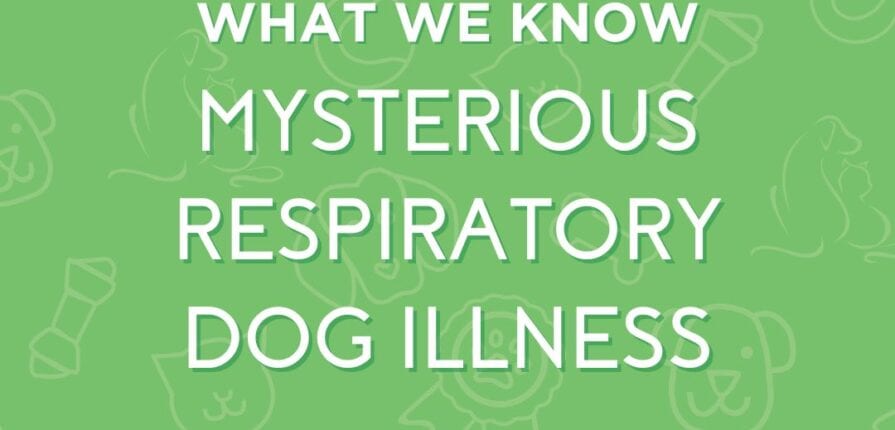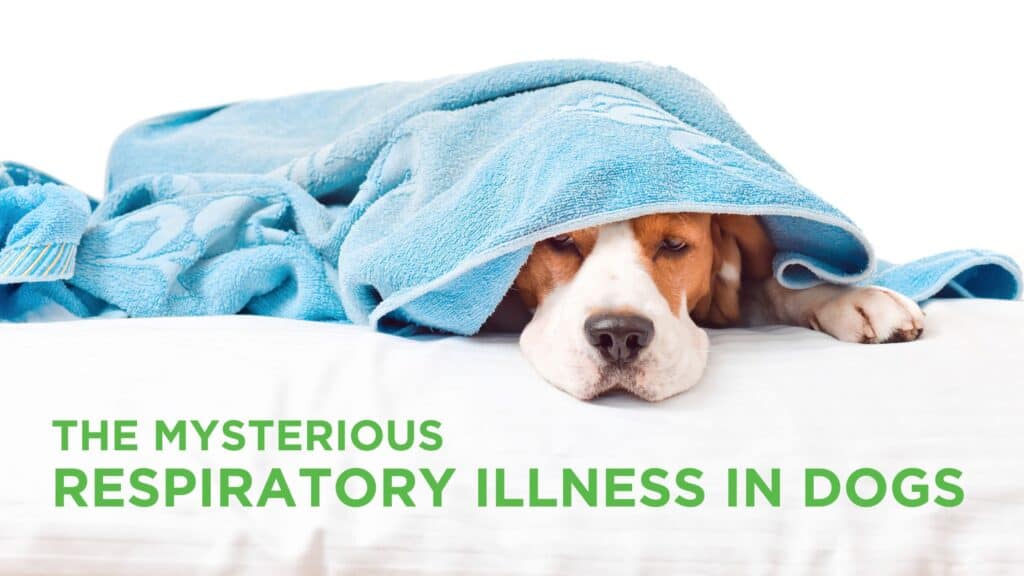What we know about the mysterious illness in dogs in Miami
We’re all seeing frightening news about a mysterious, aggressive respiratory illness spreading in dogs around the country. As of Tuesday, November 22, 2023, Miami-Dade County Animal Services has confirmed that there haven’t been any reported cases in the region of this disease. Animal Services also said there weren’t any confirmed cases here in South Florida.
However, “While there are no reported cases in our region, we advise dog owners to remain vigilant and take necessary precautions to ensure their pet’s well-being,” Miami-Dade County Animal Services Director Annette Jose said in a statement. “Keeping dogs up to date on vaccinations, including those protecting against respiratory illness, is crucial.”
Symptoms of the mysterious respiratory illness include:
- Coughing
- Sneezing
- Nasal or eye discharge
- Lethargy
The initial symptoms caused by the mysterious illness are similar to the disease known as “kennel cough” or “canine cough.” The first symptom that usually appears is sneezing, then a wet cough, according to Animal Services. “If untreated, or if the pet has other underlying conditions, it can develop into pneumonia,” Miami-Dade County Animal Services states. If your pet falls ill, call your vet immediately- DO NOT WAIT.
What is this respiratory illness?
The cause of the canine respiratory disease that was first discovered in Oregon is still a mystery. Veterinarians in Oregon and around the country are working hard to understand: “Based on the epidemiology of the cases reported at this point, the cases appear to share a viral etiology, but common respiratory diagnostic testing has been largely negative,” Cantu-Schomus wrote in an email. “A handful of cases do test positive for M. cynos, but that agent is not believed to be the underlying causative agent.” We hope to learn more. Source: AVMA.org
How to protect your dog from getting ill:
Miami-Dade County Animal Services recommends limiting your dog’s interactions with other dogs, avoiding taking their pets to dog parks, groomers, and boarding places, and keeping your distance on walks. Most importantly, make sure your dog’s vaccinations are up to date. While veterinarians don’t know the cause of the illness, it’s best to cover all bases in the meantime. Remember to keep your dog home if they’re sick. Some dogs you want to be extra cautious with include:
- puppies who’ve not received all of their vaccines
- geriatric dogs, dogs with autoimmune diseases, or other health conditions
- dogs taking immunosuppressants, steroids, cancer treatments, or other drugs that could lower their immune response (source: Dr. Poulsen, Milwaukee Journal Sentinel).
How Equipaws Pet Services is Protecting its Clients:
- We take care of pets in their homes so we minimize interaction with other dogs naturally.
- It’s also our policy to avoid strange dogs while walking, and we will continue to do so.
- We also are committed to washing our hands thoroughly in between visits.
- We will notify all pet parents immediately if we notice any of the symptoms associated with this illness.
- We’re also doing our best to stay up to date with all emerging information and will share it with our clients and social media followers.
Going to Dog-Friendly Events in Miami?
Please take precautions, especially with older and immunocompromised dogs or if you’re worried at all. We will still have our events on December 7th (the AKC Fit Walk in South Miami) and the December 15th movie night at The Barnacle, but only bring your dogs if you’re comfortable taking them out. We can socialize and enjoy each other’s company without pups! We might make it so that it’s truly people-only, depending on whether or not the illness spreads to Miami.
Does the mysterious respiratory illness affect cats?
“Right now, we’re only seeing it in dogs. Typically, bacteria and viruses don’t necessarily spread from species to species,” says Dr. Lindsey Ganzer, a veterinarian in Philadelphia who has treated dogs with the disease.
Can the respiratory illness be spread from human to dog?
Dr. Keith Poulsen, the Director of the Wisconsin Veterinary Diagnostic Laboratory says no, that “it is not currently believed that dogs can pass the respiratory illness to humans, or vice versa.
“I think it’s important to say that we aren’t seeing anything that’s connected with people,” he said. “We don’t recognize this as a zoonotic pathogen at this point.” Read more here.
For more information, please visit www.miamidade.gov/animals or contact 311. You can also head over to the American Veterinary Medical Association to stay up to date on what, exactly, this illness is.



